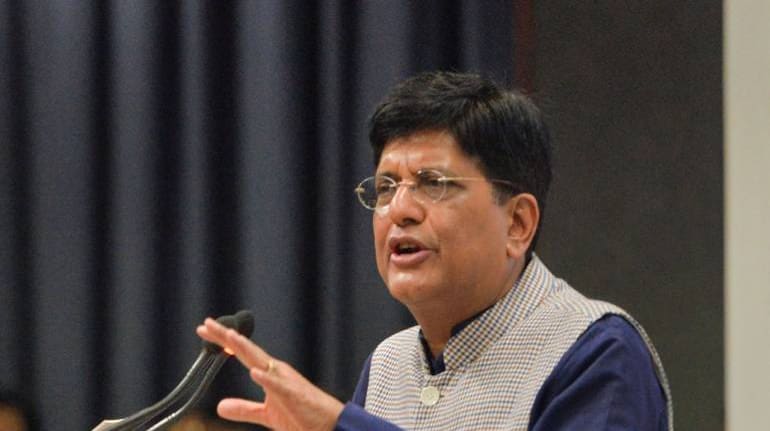



The government is seeking to finalize proposed trade deals with a raft of nations, aiming to forge strategic trade partnerships with all of them in 2022.
Yet, despite the new impetus, the current deadlines remain tight and more work needs to be done on all the major deals under discussion, senior officials told Moneycontrol.
The Commerce Department is currently negotiating up to eight free trade agreements that have increasingly been billed as the most important way to boost exports in the mid- to long-term.
On Monday, Commerce Minister Piyush Goyal said India is close to concluding talks on proposed deals with the UK, Australia and the United Arab Emirates, while readying itself for a new set of talks with Canada and Israel.
Consequently, offers for trade negotiation are being readied, talks accelerated and the agenda pruned of more technical, complicated disputes, officials said.
But they also warned that more time will be needed to properly negotiate technical clauses, gather industry inputs and close potential trade loopholes.
Tight deadlines
Over the past four years, most deadlines announced by the government to sign trade deals have not been met. The current set of deals faces the same challenge -- tight deadlines have reduced the room to discuss issues, officials said.
After finally deciding not to join the multilateral Regional Comprehensive Economic Partnership (RCEP) pact in November 2019, New Delhi has become more keen on signing bilateral deals.
This has been true for most countries that are favouring bilateral trade alliances in place of the older multilateral system under the World Trade Organization (WTO).
As a result of the global trend, India had been under pressure to quickly wrap up talks with major trade partners to secure wider market access for Indian goods and make Indian exporters more competitive globally.
"An outcome of this has been the increasingly tight deadlines that trade negotiators now have to work on. Considering how most of the proposed trade pacts are stuck over complicated issues on which no side wants to move quickly, this had been a challenge," said a senior foreign trade expert who works with the Commerce Department.
Missed deadlines
A prime example of this is the proposed Comprehensive Economic Cooperation Agreement (CECA) with Australia that recently missed its Christmas deadline because of issues of market access for Australian dairy products.
The government had announced that both nations would ready the details for an early harvest trade deal by December 2021, or in just three months.
In the agricultural sector, Australia is ambitious about market access for fruits and vegetables, grains and dairy, along with high-value products such as premium wines.
But the government remains wary of allowing Aussie companies to expand into the Indian market, which is dominated by a large number of small players. The lack of clarity on e-commerce rules is also holding up a deal.
India had also decided to begin formal negotiations with the United Kingdom by November 2021 . While both nations have officially maintained that recurring waves of the COVID pandemic had been responsible for the delay, people in the know say India has been slow to respond on removing tariffs on high-value British goods such as whiskey and automobiles.
Removal of duties of up to 150 percent on whisky and 125 percent on British-made cars had been a key demand from London. British Secretary of State for International Trade Anne-Marie Trevelyan is expected to visit India later this month for talks.
Existing challenges
In 2022, the government wants to continue the early harvest model of trade discussions. An early harvest trade deal is one in which both parties sign off on a set of relatively easily achievable deliverables.
Such pacts target specific goals such as tariff reduction and market access on select items while leaving more contentious items off the agenda.
"It is hoped that through this method, interim agreements can be reached with most countries, with more comprehensive deals to be signed down the line. Early harvest is the best bet in quickly wrapping up talks, and it is expected to deliver results soon," another official said.
India is also negotiating multiple trade deals with other parties, notably the European Union and the United States. A common thread in these talks is that they are early harvest trade pacts and they have all hit a wall.
Given the complications of foreign trade negotiations among large, complex economic powers, India had chosen to leave out the more controversial issues for tackling later. For the EU, this would be India's strict data protection laws and for the US, taxation of digital giants.
Discover the latest Business News, Sensex, and Nifty updates. Obtain Personal Finance insights, tax queries, and expert opinions on Moneycontrol or download the Moneycontrol App to stay updated!